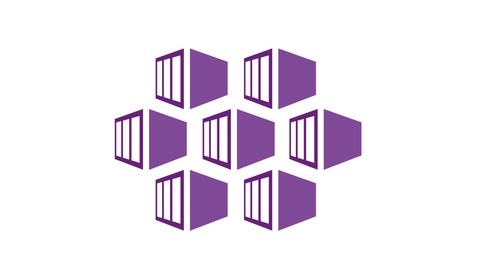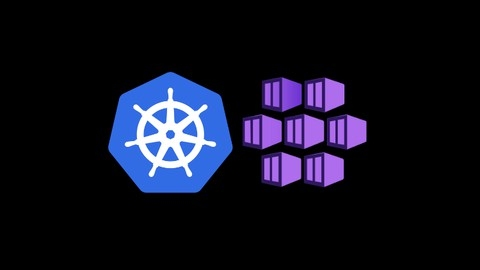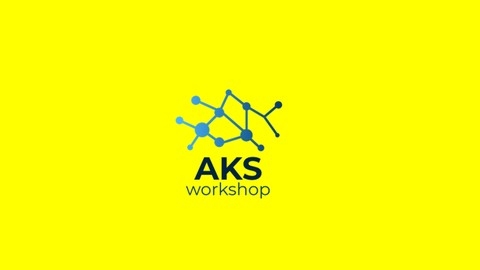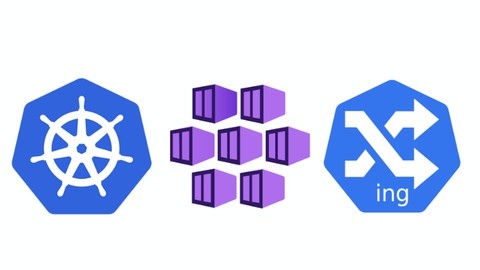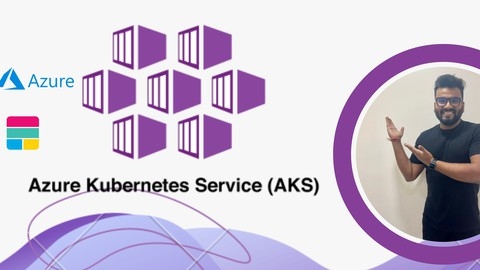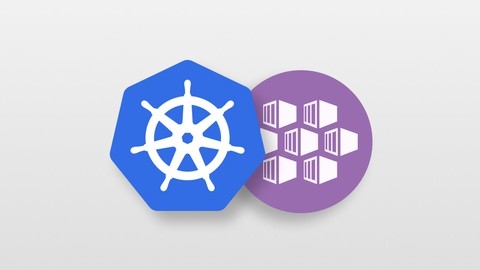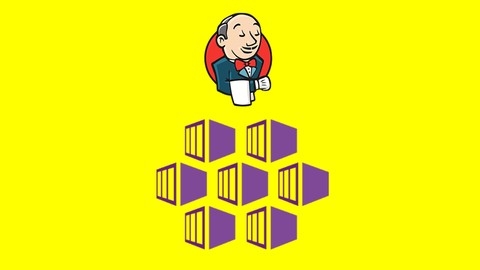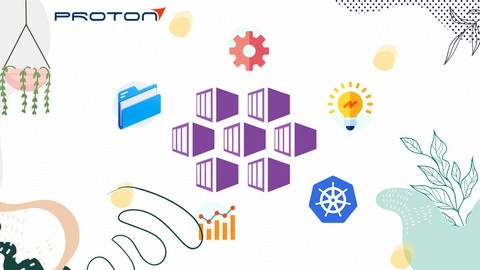Azure Kubernetes Service (AKS) is a powerful managed Kubernetes offering from Microsoft Azure that simplifies the deployment, management, and scaling of containerized applications.
AKS provides a robust platform for developers to build and deploy microservices, enabling them to take advantage of the benefits of containerization, such as portability, scalability, and improved resource utilization.
By learning AKS, you can gain the skills needed to design, deploy, and manage sophisticated cloud-native applications, opening up a world of opportunities in the ever-growing field of cloud computing.
Finding a good Azure Kubernetes Service course on Udemy can be a challenge, with a vast array of options available.
You’re looking for a course that’s comprehensive, engaging, and taught by experienced professionals, but also aligns with your learning style and specific goals.
You want a course that goes beyond basic concepts and equips you with the practical skills needed to confidently manage and scale your AKS clusters.
For the best Azure Kubernetes Service course overall on Udemy, we recommend Azure Kubernetes Service with Azure DevOps and Terraform.
This comprehensive course provides a deep dive into AKS, covering everything from setting up your first cluster to deploying applications using Terraform and Azure DevOps pipelines.
You’ll gain a thorough understanding of AKS fundamentals, explore various storage options, learn about networking and security best practices, and master the art of continuous integration and deployment.
This course is ideal for those who want to gain a practical, hands-on understanding of AKS and its integration with other Azure services.
While this is our top pick, there are many other excellent AKS courses available on Udemy.
Keep reading to explore our recommendations for different learning styles and goals, including beginner-friendly introductions, advanced courses focused on specific AKS features, and courses tailored to specific use cases and deployment strategies.
Azure Kubernetes Service with Azure DevOps and Terraform
This course covers everything from setting up an Azure Kubernetes Service (AKS) cluster to deploying applications using Terraform and Azure DevOps pipelines.
It starts by introducing you to AKS and guiding you through creating a cluster.
You’ll learn how to explore the cluster using kubectl and the Azure management console, set up the Azure CLI locally, and deploy a sample application to test the cluster.
Next, you’ll dive into Docker fundamentals, including understanding Docker architecture, installing Docker, pulling and building Docker images, and essential Docker commands.
This lays the foundation for working with containerized applications on Kubernetes.
The course then provides a thorough understanding of Kubernetes fundamentals, covering pods, services, replicasets, deployments, and more.
You’ll learn to create and manage these resources using both the imperative (kubectl) and declarative (YAML) approaches.
As you progress, you’ll explore various AKS storage options like Azure Disks, Azure MySQL Database, and Azure Files.
You’ll also learn about Kubernetes secrets and ingress, including context path-based routing, domain name-based routing, and SSL with Let’s Encrypt.
The course covers advanced topics like resource requests and limits, namespaces, virtual nodes, Azure Container Registry integration, and Azure DevOps pipelines for building and deploying Docker images to AKS.
You’ll learn to create pipelines from scratch, use release pipelines, and configure access to multiple AKS clusters.
Additionally, you’ll learn about Active Directory authentication for AKS admins, Kubernetes RBAC with Azure AD, cluster autoscaling, and horizontal pod autoscaling.
The course also teaches you how to create a production-grade AKS cluster using the Azure CLI, including setting up virtual networks, subnets, AD users, groups, and log analytics workspaces.
Finally, you’ll learn to provision AKS clusters using Terraform, both locally and with Azure DevOps pipelines.
You’ll understand Terraform basics, language syntax, input variables, and output values, and apply them to create AKS clusters with custom configurations.
Azure Kubernetes Service - AKS
This course provides a comprehensive and practical guide to working with Azure Kubernetes Service (AKS).
You’ll gain a deep understanding of AKS, from its fundamental concepts to building and managing your own clusters.
You’ll be guided through the essential aspects of AKS, including:
-
AKS Fundamentals: Learn the nuts and bolts of AKS, including pricing models, deployment options, and the differences between managed and self-managed Kubernetes.
-
Network Configuration: Master the intricacies of AKS network architecture, including Kubenet, Azure CNI, and load balancing configurations.
-
Security and Integration: Learn best practices for securing your AKS clusters and integrating them with Azure Active Directory for robust access control and user management.
-
Hands-On Practice: Engage with numerous hands-on exercises that solidify your understanding of AKS and prepare you for real-world scenarios.
You’ll learn to use essential tools like Azure CLI, Azure Portal, and the K8S Dashboard, enabling you to configure and manage your AKS clusters effectively.
-
Storage and Volume Management: Explore different types of storage in AKS, including Azure Disk Storage, and learn how to dynamically and statically provision volumes for your applications.
-
Troubleshooting and Monitoring: Discover techniques for monitoring your AKS clusters using tools like Telemetry and log debugging, empowering you to identify and address potential issues.
You’ll develop a strong foundation in the core concepts of Kubernetes and gain the practical skills needed to work confidently with AKS in your cloud projects.
Azure Kubernetes Service (AKS) Made Easy: Updated May 2024
This comprehensive course dives deep into Azure Kubernetes Service (AKS), equipping you with the knowledge and skills to confidently deploy, manage, and scale containerized applications.
You’ll begin by mastering the fundamentals of containers and Docker, building your first web app and pushing it to Docker Hub.
The course then introduces you to Kubernetes, its architecture, and the key distinctions between self-managed and cloud-managed clusters.
You’ll get hands-on experience setting up your first AKS cluster, mastering the command line, and exploring both the Kubernetes and Azure infrastructure sides, gaining a deep understanding of components like kubelet, containerd, and Azure-IP-masq-agent.
Networking concepts are covered in detail, including the Kubenet and Azure CNI network plugins.
You’ll learn how to integrate your own virtual network, security groups, and route tables, and explore different LoadBalancer types, including AKS clusters with NAT Gateway and UDR.
The course also examines the interaction between AKS and HTTP proxy.
Security and identities take center stage as you delve into AKS-managed Active Directory integration, Azure RBAC, and Kubernetes RBAC.
You’ll learn how to implement network policies, integrate Azure Key Vault, and leverage features like Microsoft Defender for Containers, AppArmor, and Seccomp to bolster your AKS security posture.
Scaling your AKS cluster efficiently is covered extensively, using techniques like resource reservations, Horizontal Pod Autoscaler, Vertical Pod Autoscaler, and Cluster Autoscaler.
You’ll explore virtual nodes and KEDA for scalable deployments.
The course thoroughly explores storage options for your AKS cluster, including Azure Disk, Azure File, and Azure Blob.
You’ll learn about Azure NetApp Files and Astra Trident and how to leverage them for persistent storage within AKS.
Throughout the course, you’ll benefit from interactive quizzes and practical exercises designed to solidify your understanding.
You’ll learn to monitor and troubleshoot your AKS cluster using tools like Azure Monitor with Container Insights, Azure Advisor, and Prometheus.
You’ll also master safe and efficient AKS cluster upgrades.
This course provides a comprehensive understanding of AKS, empowering you to confidently deploy, manage, and scale containerized applications in the cloud.
Microsoft Azure Kubernetes Service Workshop
You’ll start with the fundamentals, setting up your Azure account and gaining a solid understanding of Kubernetes basics.
You’ll learn to create AKS clusters and manage namespaces, then deploy a full-fledged microservice application, including a Mongo database using Helm.
You’ll explore best practices for securing your application, including deploying SSL/TLS certificates for secure communication.
The workshop takes you through the entire development lifecycle, from building a back-end API and a front-end to integrating with Kubernetes services and Ingress controllers for easy access.
You’ll also learn how to monitor your cluster’s health using Azure Monitor, ensuring your application runs smoothly and reliably.
Azure Kubernetes Service AGIC Ingress: 30 Real-World Demos
With 30 real-world demos, you’ll gain hands-on experience with a wide range of features and best practices.
You’ll start by setting up your AKS cluster and AGIC add-on, then dive into fundamental concepts like using default backends and HTTP paths for routing traffic.
As you progress, you’ll tackle more advanced topics like URL routing and backend path prefixes, ensuring you understand the full potential of AGIC.
The course covers a vast landscape, including:
-
Managing SSL certificates: You’ll learn various methods for handling SSL certificates, including using Cert Manager and Lets Encrypt.
-
Setting up health probes: You’ll gain the ability to monitor your applications with health probes, ensuring uptime and stability.
-
Implementing security with WAF: You’ll explore the Web Application Firewall (WAF) and how to protect your applications from common threats.
-
Deploying AGIC with Helm charts: You’ll learn how to deploy AGIC using Helm charts, streamlining your deployment process.
-
Navigating namespaces, TLS, and external DNS: You’ll gain practical experience with key Kubernetes concepts like namespaces, TLS, and external DNS, further expanding your skillset.
You’ll be able to implement complex routing rules, secure your applications with SSL and WAF, and deploy AGIC efficiently using Helm.
This course is an excellent resource for anyone seeking to master AGIC and enhance their Kubernetes deployments.
Introduction to Azure Kubernetes Service - Terraform & ELK
You’ll start by learning how to create, manage secrets, and securely access your own AKS cluster.
This hands-on approach empowers you to build the foundation of your Kubernetes infrastructure with confidence.
Moving beyond the basics, you’ll dive into the core components of Kubernetes, including Pods, Deployments, and Services.
You’ll learn to define and manage these building blocks effectively, allowing you to structure your applications in a robust and scalable manner.
The course then explores advanced concepts like Namespaces and StatefulSets, enabling you to organize your applications and manage stateful applications like databases with ease.
The course takes you through the process of deploying applications on your AKS cluster.
You’ll gain valuable experience setting up persistent storage, configuring ConfigMaps, and utilizing LoadBalancer services to expose your applications securely.
You’ll learn to handle common errors like Crashloopback and implement rolling updates for smoother deployments.
Finally, you’ll explore powerful tools like Kubernetes Lens and K9S for managing your cluster.
You’ll gain practical knowledge on scheduling deployments, utilizing NodeSelectors and taints for efficient resource allocation, and leveraging AKS container monitoring and Logstash for valuable insights into your application performance.
This course offers a practical and hands-on approach to learning Kubernetes on Azure.
It covers a wide range of topics, from foundational concepts to advanced deployment strategies and management techniques.
Designing a Production Grade Azure Kubernetes Service(AKS)
You’ll begin by understanding the core architecture of AKS, diving deep into node reservations and hands-on cluster creation within the Azure environment.
The course then guides you through containerizing existing applications using Docker and deploying them onto your AKS cluster.
You’ll learn best practices for refactoring applications into microservices, a key approach to building modern, scalable systems.
Scaling your deployments is addressed in detail, with a dedicated module on Horizontal Pod Autoscaling (HPA).
You’ll gain practical experience with different service types (ClusterIP, NodePort, LoadBalancer) and learn to deploy real-world applications like WordPress with MySQL.
The course goes beyond the basics, delving into advanced concepts such as Ingress Controllers for managing external traffic.
You’ll explore how to leverage Node Affinity to categorize workloads and master the creation and management of multi-container pods.
You’ll gain practical experience with Velero, a powerful tool for backing up and recovering your AKS cluster, and learn about various storage options within AKS, including Azure Disks and Azure Fileshare.
The course also addresses security by demonstrating how to integrate Azure Key Vault with AKS for secure secrets management.
Finally, you’ll learn how to implement rolling updates for seamless application deployments and explore the integration of Azure Active Directory (AAD) with AKS, adding a robust layer of security and access management.
This course offers a balanced blend of theory and practical application, providing you with the necessary knowledge and skills to confidently navigate the world of AKS.
Azure Kubernetes Service DevOps
You’ll gain hands-on experience setting up a container registry, configuring Jenkins for continuous integration and continuous deployment, and seamlessly integrating with your Github repository.
The course delves into the intricacies of configuring Jenkins pipelines for building, testing, and deploying applications to AKS.
You’ll learn best practices for crafting Dockerfiles, defining deployment strategies, and navigating the complexities of AKS cluster authentication.
The comprehensive approach ensures you grasp the fundamentals of continuous integration and delivery in a cloud-native environment.
While the course provides a strong foundation in AKS and Jenkins integration, it’s important to note that it might not delve into advanced topics like complex deployment scenarios or fine-tuning performance optimization for your AKS cluster.
Nevertheless, this course serves as a valuable starting point for anyone aiming to master the art of deploying applications on Azure’s robust Kubernetes platform.
Advanced Azure Kubernetes Service (AKS) Features Made Easy
This course is a deep dive into the advanced features of Azure Kubernetes Service (AKS), taking you far beyond the basics.
You’ll learn to master powerful tools like Terraform and Azure Bicep, automating cluster creation with Infrastructure as Code (IaC) and ensuring consistency and efficiency.
Imagine managing multiple AKS clusters with ease using Azure Kubernetes Fleet Manager—you’ll gain the skills to do just that.
Get ready for a hands-on journey as you explore Node autoprovisioning (NAP) using Karpenter, a game-changer for scaling your cluster automatically based on your needs.
And, if data security is paramount, you’ll learn to leverage Azure Backup to ensure your AKS clusters are protected.
Security is woven into the fabric of this course.
You’ll dive into best practices for enhancing container isolation using Pod Sandboxing and Kata containers, leaving no room for vulnerabilities.
You’ll even discover how to optimize your applications for speed and performance by utilizing Proximity Placement Groups.
Want to keep a watchful eye on your AKS clusters?
This course has you covered.
You’ll become proficient in using Azure Managed Prometheus and Grafana for comprehensive monitoring, gaining valuable insights into your cluster health.
You’ll also learn to fine-tune CoreDNS for advanced DNS management and explore the capabilities of the Istio Service Mesh add-on, allowing you to build and manage sophisticated microservices architectures.
This course takes a practical approach to continuous integration and continuous deployment (CI/CD).
You’ll leverage GitHub Actions for seamless deployments in AKS and explore the best practices for implementing GitOps—a modern approach to infrastructure management.
Mastering Kubernetes Services on Microsoft Azure (Nov 2022)
You’ll begin by familiarizing yourself with the Microsoft Azure Cloud Platform, learning how to navigate the Azure portal and create resource groups.
From there, you’ll delve into the world of Kubernetes, gaining hands-on experience in building and configuring your own AKS cluster.
You’ll quickly move on to the exciting part: deploying your applications to your newly created AKS cluster.
This includes crafting container images, deploying your application, and even accessing your AKS cluster from a Windows VM.
The course then guides you through the essential process of scaling your Kubernetes deployments, both up and down, allowing you to adjust your application’s resources based on demand.
You’ll learn how to implement persistent storage for your AKS cluster using Persistent Volume Claims, a crucial component for maintaining data persistence and application stability.
This includes hands-on practice in creating claims and attaching them to pods within your cluster.
Finally, you’ll gain access to the Azure Kubernetes Service (AKS) dashboard, providing you with a visual representation of your cluster and its components.
This course is ideal for individuals looking to gain a solid foundation in deploying and managing applications on Azure Kubernetes Service.
